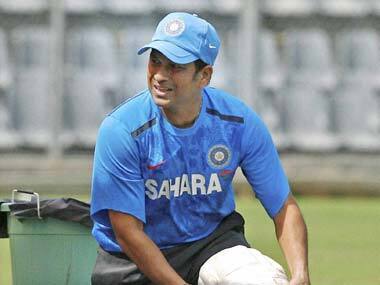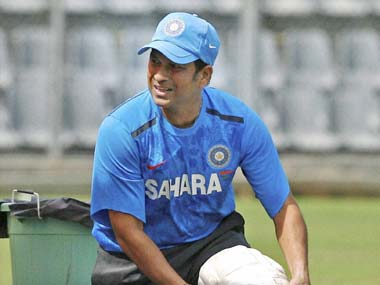When Sachin Tendulkar finally steps away from the game, will he have any regrets? Will he look back at the 136 against Pakistan in 1999 or the 2003 World Cup final and wish he had done something different? Perhaps he will turn his mind back to when he was made captain at 25, and wonder if he was too young to take over the mantle of the team. For Tendulkar watchers, his captaincy will always be a blot on his record. A man devoted to winning won just four of 25 Tests in his two stints as team leader while losing nine. It was a similar story in the one-dayers, with India winning 23 and losing 43 of his 73 games in charge. [caption id=“attachment_1227563” align=“alignleft” width=“380”]  Sachin Tendulkar the captain never matched the heights of Sachin Tendulkar the cricketer. PTI[/caption] Among the many theories that have been put forward for Tendulkar’s lack of success is that he could not understand that everyone was not like him. Nobody had Tendulkar’s natural genius; nobody prepared harder than Tendulkar. Yet he expected his team-mates to match him and could not understand when they failed. Count former India fast bowler, Javagal Srinath, as a supporter of this theory. At the India Today conclave on Tendulkar that was held in Mumbai on Tuesday, Srinath said, “Some of us could not emulate what he wanted.” According to Srinath, Tendulkar would turn up in the nets and take the ball and bowl whatever he wanted. Outswingers, inswingers, leg spin, offspin. It didn’t matter. It would all be Test quality. “That is his ability to connect with the game,” Srinath said. “Those three hours in practice you would not see him while away his time. Even the optional practice he never missed. To expect the same from others was tough.” Tendulkar’s cricket brain has always been of the highest quality. He would make plans for the opposing batsmen and expect his bowlers to execute them flawlessly. “When I was not able to bowl the outswinger, he would shout from the slips: ‘bahar dalao, bahar dalo,’” Srinath said. “But I told him I could not.” After the day’s play, Tendulkar would take the ball in the nets and bowl outswingers at will, then turn to Srinath and say ‘do it like that’. It was always going to be hard to live up to such genius. “You could see him getting frustrated. He wanted to win so badly,” Srinath said. Tendulkar did change the second-time around. “When he came back, he was far, far better,” Srinath said. “He gave time for people. Patience was something you could see in him. He learned to expect differently from each person, whatever their level of talent was.” The theory has another supporter in Kiran More, who not only played with Tendulkar, but was chairman of selectors too. “There was an issue that he expected others to play at his level. ‘I am doing it, why can’t they do it’?” However, Dilip Vengsarkar argued that Tendulkar as captain was only going to be as good as his team. “I don’t think he got a very good team. He asked for a few players. He was not given them. And he was upset,” he said. Reportedly a theory doing the rounds at the time was that certain sections of India’s cricketing world was worried that Tendulkar would become an Imran Khan figure – a dictator of Indian cricket – and that’s why he was not given the team he wanted. However, Bishan Singh Bedi, another former India captain, rubbished that theory. “Sachin was temperamentally different from Imran,” he said. “He was shy and withdrawn and that’s why he might not have enjoyed captaincy as much.” For Bedi, the same middle-class values that made Tendulkar an exemplary batsman kept him from becoming an exemplary captain. He also pointed out Sir Garfield Sobers was not a great captain either. That’s not to say Tendulkar did not have any positive qualities as a leader. “Sachin would never compliment you easily as a player,” Srinath said. “Maybe a nod or a handshake, but he would not say too many words to you. That was one of his good traits as a captain. It made us raise our levels because you have to please your captain.”
For Tendulkar watchers, his captaincy will always be a blot on his record.
Advertisement
End of Article
Written by Tariq Engineer
Tariq Engineer is a sports tragic who willingly forgoes sleep for the pleasure of watching live events around the globe on television. His dream is to attend all four tennis Grand Slams and all four golf Grand Slams in the same year, though he is prepared to settle for Wimbledon and the Masters. see more


)

)
)
)
)
)
)
)
)



